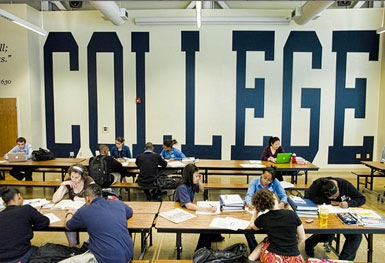
MBTAAnalysis: A look inside the MBTA
0 Comments
/
The MBTA shuttles over a million passengers a day around Greater…
 https://pioneerinstitute.org/wp-content/uploads/CloseupClock-1.jpg
739
1244
Mary Connaughton
https://pioneerinstitute.org/wp-content/uploads/logo_440x96.png
Mary Connaughton2017-02-20 12:34:192017-02-21 09:47:58The Clock is Ticking…….
https://pioneerinstitute.org/wp-content/uploads/CloseupClock-1.jpg
739
1244
Mary Connaughton
https://pioneerinstitute.org/wp-content/uploads/logo_440x96.png
Mary Connaughton2017-02-20 12:34:192017-02-21 09:47:58The Clock is Ticking…….
Modeling Urban Scholarship Vouchers in Massachusetts
Vouchers have the potential to do many things - improve family satisfaction, reduce racial isolation, and strengthen educational outcomes for both the recipients and the children remaining in public schools - all at little or no net cost to taxpayers. The program described in this paper could provide 10,000 students from low-income families with the choices that other families already possess.

Federal Overreach and Common Core
This report provides the historical background and interpretive analysis needed to understand controversies surrounding Common Core and its associated tests.

Support & Defend: The K-12 Education of Military-Connected Children
In-depth analysis of how the Department of Defense Education Activity (DoDEA) provides high-quality education to more than 84,000 eligible Military-Connected Children in more than 190 schools around the world and scores above the national averages on nearly all standardized assessments. This report also examines efforts to expand that success to Military-Connected Children attending non-DoDEA schools.

Pioneer Institute Statement on MBAE PARCC/MCAS Study
The Massachusetts Business Alliance for Education (MBAE) continues its advocacy for Common Core and the Partnership for Assessment of Readiness for College and Careers (PARCC), a federally funded testing consortium, with the release of a study concluding that Massachusetts Comprehensive Assessment System (MCAS) performance is not an indicator of preparedness for higher education success.

Why Massachusetts Should Abandon the PARCC tests and the 2011 Coleman et al English Language Arts Standards on which the MCAS Tests are Based
Stotsky first describes her qualifications, as well as the lack of relevant qualifications in Common Core’s standards writers and in most of the members of Common Core’s Validation Committee, on which she served in 2009-2010.

Great Teachers Are Not Born, They Are Made: Case Study Evidence from Massachusetts Charters
This report highlights five high-performing charter schools that have assembled and trained highly effective teaching workforces. These include networks include Lowell Collegiate Charter Public School, City on a Hill Charter Public Schools, Advanced Math and Science Academy, the Francis W. Parker Charter Essential School, and Match Charter Public Schools.

Expanding METCO and Closing Achievement Gaps
The paper begins by examining segregation in the United States and in Massachusetts. While schools became more racially balanced in the 1970s, that trend has been reversed in more recent decades. In Massachusetts more than one quarter of African American students and similar numbers of Hispanic students attend heavily segregated schools.

Innovation Interrupted: How the Achievement Gap Act of 2010 Has Redefined Charter Schooling in Massachusetts
Massachusetts charter schools are among the highest performing in the country, as measured by standardized test results. Despite this, the Commonwealth has created a difficult policy environment for growing new and existing charter schools, one that is defined by a statewide cap on the number of charter schools that can exist and a Smart Cap, enacted in 2010, which raised the cap on charter schools in certain underperforming districts.

Filling the Skills Gap: Massachusetts Vocational-Technical Schools and Business Partnerships
Society is recognizing that in today’s economy, many graduates of four-year liberal arts colleges are looking for work, while students from career vocational technical schools are finding high-skill, high wage jobs. Why? Because they have marketable, industry-sanctioned competencies and employability skills.

Imperiling the Republic: The Fate of U.S. History Instruction under Common Core
The Founders of the American experiment in democracy assumed that understanding American history was essential in a Union where publicspirited citizenship and the capacity to live under laws “wholesome and necessary for the public good” would characterize the new nation. To proceed without the knowledge of history, in their view, was a sure path to “a tragedy or a farce.”

Study Finds Common Core Math Standards Will Reduce Enrollment in High-Level High School Math Courses, Dumb Down College Stem Curriculum
However, the greatest harm to higher education may accrue from the alignment of the SAT to Common Core’s high school standards, converting the SAT from an adaptable test predictive of college work to an inflexible retrospective test aligned to and locking in a low level of mathematics. This means that future SAT scores will be less informative to college admission counselors than they now are, and that the SAT will lose its role in locating students with high STEM potential in high schools with weak mathematics and science instruction.

The Good, the Bad and the Ugly Eight Patrick Administration Budgets Later
Has Massachusetts made progress towards providing a better quality of life for its residents while maintaining financial stability over the past decade or so? In July 2014, Governor Deval Patrick signed into law the eighth and final budget of his administration with only a few vetoes and recommendations to the General Court. Five years after the financial crisis, this is an opportune moment to review and reflect upon the fiscal state of Massachusetts and what has changed since the beginning of this governorship more than seven years ago.

Meeting the Commonwealth’s Demand: Lifting the Cap on Charter Public Schools in Massachusetts
Charter public schools are one of the few public school choice options available in Massachusetts largely due to restrictions the state constitution imposes on public education spending. Charters outperform traditional public schools; statewide, charter school students gain an additional month and a half of learning in English and two and a half months in math compared to students in traditional public schools.

Giving Kids Credit: Using Scholarship Tax Credits to Increase Educational Opportunity in Massachusetts
While higher-income families have a plethora of K-12 educational options, lower-income families’ options are often limited to the local district school to which they are assigned. This paper proposes a constitutional and fiscally responsible method of expanding educational options for low-income families.

Seeds of Achievement: Appletree’s Early Childhood D.C. Charter Schools
Although early childhood education has been on the federal agenda since the 1960s and President Johnson’s War on Poverty, a renewed focus on the value of high-quality early childhood programming, in the form of President Obama’s Preschool for All initiative, has thrust the issue of universal preschool back into the spotlight.

Cogs in the Machine: Big Data, Common Core, and National Testing
The era of “Big Data” has overtaken the field of education. New technology promises to transform education, facilitating previously unimagined learning opportunities and, from a purely administrative standpoint, allowing educators to complete in seconds what used to consume laborious hours.

How to Address Common Core’s Reading Standards: Licensure Tests for K-6 Teachers
The purpose of this report is to provide information to state legislators, boards of education, and departments of education on why they should adopt a stand-alone and comprehensive reading licensure test addressing Common Core’s reading standards. We do not tell states what test to adopt. Rather, we describe the features they should consider before they decide on a test that these prospective teachers should be required to pass if the state does not already require a reading test adequately addressing all of Common Core’s reading standards

Common Core’s Validation: A Weak Foundation for a Crooked House
The final version of the Common Core standards was released in June 2010. Also released at the same time was a report containing the signatures of 24 members of the Common Core Validation Committee, a committee appointed in the summer of 2009 to review the various drafts of the standards and to assure the public that the standards in mathematics and English language arts were research-based, rigorous, and internationally competitive.

The Dying of the Light: How Common Core Damages Poetry Instruction
The fate of poetry in the school curriculum may seem like an odd subject for a Pioneer Institute report. But we are struck by the absence of comments on what constitutes literary study in the schools from organizations that might be expected to have a professional interest in the school curriculum (e.g., National Council of Teachers of English, International Reading Association, Association of Supervisors and Curriculum Developers) and from higher education sources that might be expected to have a discipline-based interest in the topic (e.g., American Academy of Arts and Sciences, Modern Language Association).

Testimony to the Missouri Elementary and Secondary Education Committee
Testimony to the Missouri Elementary and Secondary Education Committee provided in February 2014.

Testimony to the Kansas House Standing Committee on Education
Testimony to the Kansas House Standing Committee on Education in February 2014.

Matching Students to Excellent Tutors: How a Massachusetts Charter School Bridges Achievement Gaps
The pages that follow describe the history and impact of Match Corps in an attempt to capture this important educational innovation. This paper raises and answers questions about why Match’s tutoring models are so uncommonly effective and what that means for their potential impact on education beyond Match and beyond Boston. Finally, this work ends with recommendations for what policymakers and others should learn from Match, which has changed the lives of many students and stands to impact perceptions of what really makes a difference in schools.

Matching Students to Excellent Teachers: How a Massachusetts Charter School Innovates with Teacher Preparation
Known throughout the Commonwealth and the nation as a network of high-performing charter public schools, Match Education takes a highly specific approach to education reform. Match aims to help students who have been traditionally underserved in the public school system achieve at very high levels, and it does so by taking a structured, ‘No Excuses’ approach to education.

School Vouchers in Washington, DC: Lessons for Massachusetts
"School Vouchers in Washington, DC: Lessons for Massachusetts" was presented by Patrick Wolf in 2013.

School Vouchers in Washington, D.C.: Lessons for Massachusetts
This report tells the story of the Opportunity Scholarship Program, paying special attention to lessons that can be applied to educational improvement in the urban areas of Massachusetts. Section 1 describes the design and initial implementation of the program. Section 2 outlines the main features of the rigorous experimental evaluation of the program’s impacts on participating students and parents. The main results of that evaluation are presented in Section 3. Section 4 concludes by discussing the implications of the OSP results for possible school choice reforms in Massachusetts.

Charter Schools in New Orleans: Lessons for Massachusetts
While the remarkable turnaround in New Orleans was accelerated - and perhaps even made possible - by the very storm that nearly destroyed the city, it still has education experts looking for lessons that might be applied elsewhere. This paper looks at the public school reform efforts of New Orleans following Hurricane Katrina and its impact on student achievement. It also offers recommendations on how urban public schools in Massachusetts, which historically underperforms the commonwealth’s suburban school districts, could benefit from New Orleans’ experience.

A Republic of Republics: How Common Core Undermines State and Local Autonomy over K-12 Education
By signing on to national standards and the assessments that will accompany them, participating states have ceded their autonomy to design and oversee the implementation of their own standards and tests. The implications of ceding this autonomy are varied. Not only do some states risk sacrificing high quality standards for national standards that may be less rigorous, but all states are sacrificing their ability to inform what students learn.

Lowering the Bar: How Common Core Math Fails to Prepare High School Students for STEM
This paper began as a response to the attempt by Professor Jason Zimba, a lead writer of Common Core’s mathematics standards, to revise in 2013 what he said about the meaning of “college readiness” in 2010. Zimba’s original comments on this topic were uttered at the March 2010 meeting of the Massachusetts Board of Elementary and Secondary Education. In the official minutes of this meeting, we find the following: “Mr. Zimba said that the concept of college readiness is minimal and focuses on nonselective colleges.”

Looking Back to Move Forward: Charter School Authorizing in Massachusetts
Thus 20 years after the charter school movement began in Massachusetts, it is at a crossroads. This paper aims to point the Commonwealth in the right direction by exploring the history of charter school authorizations, with an eye to understanding how the current authorization process both sets Massachusetts apart from other states and stands to constrain the continued success of the charter school movement.

Common Core Facts
Who developed Common Core's standards? Three private organizations in Washington DC: the National Governors Association (NGA), the Council for Chief State School Officers (CCSSO), and Achieve, Inc.—all funded for this purpose by a fourth private organization, the Bill and Melinda Gates Foundation.
